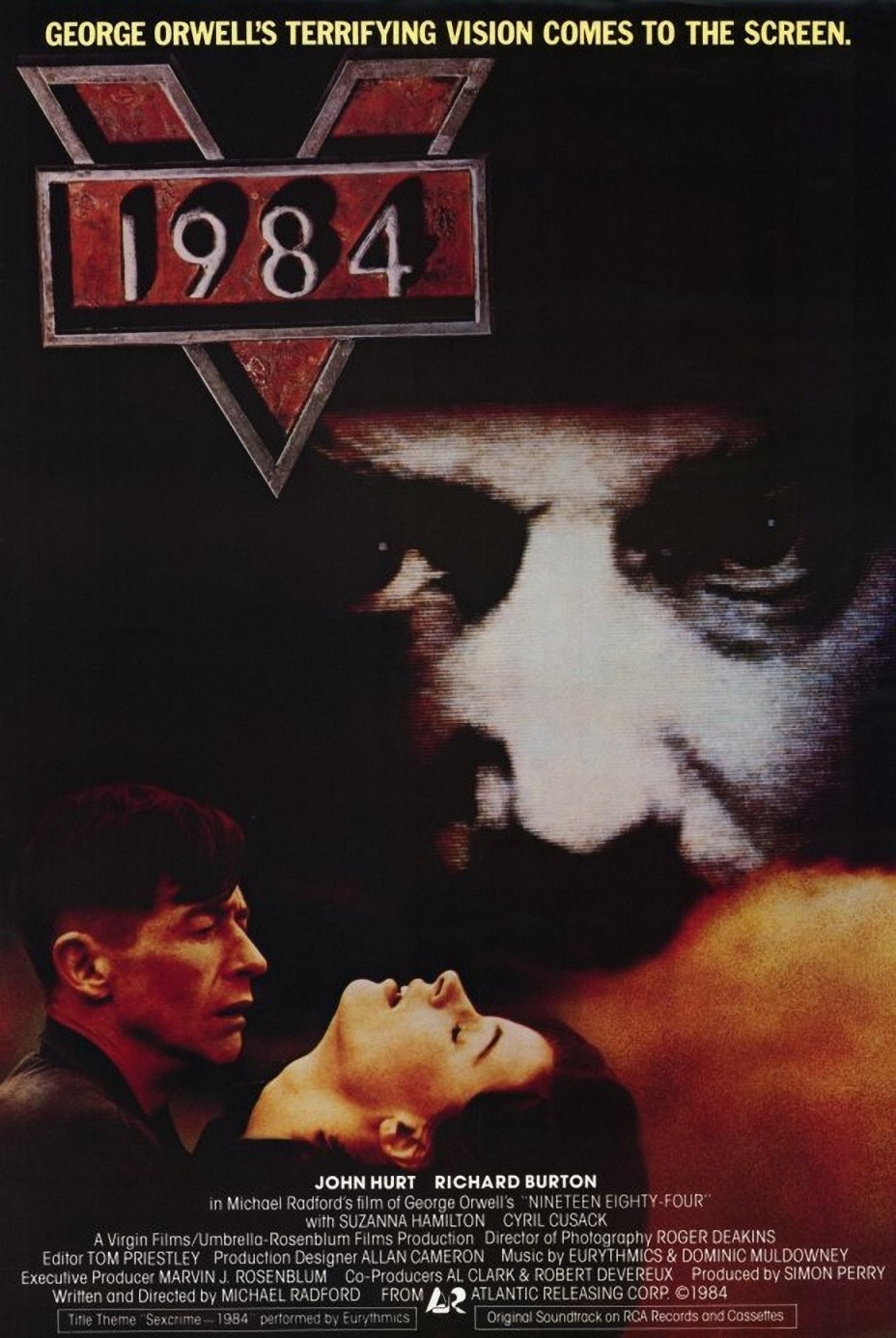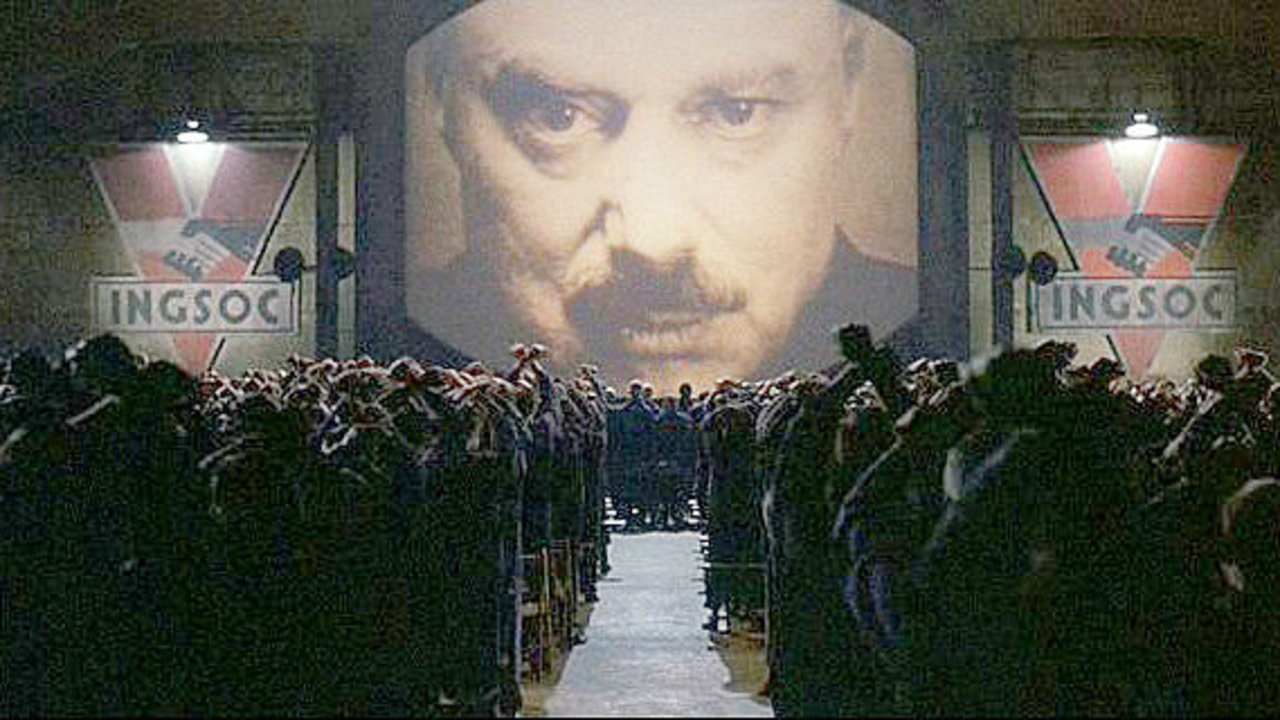Summary:
In an oppressive security state, a man tries to rebel by falling in love.
My Thoughts:
I feel like George Orwell’s 1984 has so infected culture that, even if you haven’t read about the clocks striking thirteen or about our protagonist Winston Smith, his varicose veins and the grubby little apartment he rents from the shopkeeper so he and Julia can sneak away to have sex, you’ve probably heard of Big Brother, and you’ve almost definitely heard the phrase “Big Brother is Watching.” It’s that phrase that defines everything that is important about George Orwell’s 1984; it is equal parts a criticism of totalitarian governments and ways of thinking and a warning of things that may come if we do not vigilantly fight against them at every turn.
I’ve read 1984 twice; once in high school and once right after the Edward Snowden scandal broke, and the second time had far more impact on me. At the same time, it’s not the story of 1984 that gets to me, it’s the world and the themes that do. Winston Smith’s story is not a particularly heroic or exciting one, and therein lays its strength; it’s the story of an everyman trying to rebel in ordinary ways… Most of the book is about what happens on the inside of Winston- the internal debates he has, the paranoia he faces- so I honestly thought this book was one movie that could never be turned into a film because they would never get the full effect (I felt the exact same way about Vladimir Nabokov’s Lolita, but Stanley Kubrick’s “Lolita” proved to be a rather successful adaptation). Winston’s s goal is not to overthrow Big Brother or join with the rebellion and Goldstein; it’s to have as much sex with Julia as possible, to further his own desires, because LOVE in the face of HATE is rebellion, and even if you can’t escape the system you’re in, it’s enough just to try to fight back.
Freedom is the Freedom to Say 2+2=4
Winston Smith (John Hurt, “The Elephant Man”) is a resident of Oceania who works at the Ministry of Truth where he rewrites papers so that they constantly put the Ingsoc party in a good light. Winston’s growing disinterest for the life he lives pushes him to try to find ways to rebel, though, he finds himself at a loss of what to do. Eventually, a woman named Julia (Suzanna Hamilton, “Tess”) approaches him and asks him to meet her secretly, and the two engage in a relationship, which is against party rules, and soon rent out a flat from a shopkeeper named Charrington (Cyril Cusack, “Harold and Maude”). As Winston becomes more enamored with Julia, he finds he desires to live increases, but he constantly has to be on the lookout for Thought Police, and others like his superior O’Brien (Richard Burton, “Who’s Afraid of Virginia Woolf?”).
I think the thing I like most about this film is the way that it captures the overall feeling and world of George Orwell’s novel, which is, in my opinion the most important part. The story of 1984 is rather basic; not a lot happens, but that’s the point. It feels as if Winston is stuck in time, constantly working but not progressing; he is the piece of coral inside the paperweight; he is the knight that repeatedly moves back and forth between two spaces on the chessboard. The world feels hopeless and smothering, and that’s elevated by the desaturated, bleak cinematography of DP legend Roger Deakins, the desolate production design of Allan Cameron, and the constantly anemic and exhausted appearance of John Hurt. That feeling of hopelessness pervades the film entirely; it weighs on you like the presence of the oppressive clouds that hovered over the House of Usher as our narrator approached it.
I think that this story is becoming more and more relevant as humanity moves into the future. Though Orwell could’ve never predicted some of the technological advancements of the human race, he got plenty of things right. Surveillance is an increasing concern- the NSA- facial recognition software; it’s not unlikely that an Orwellian future could be in the cards. Doublespeak and Doublethink are here; just look at Trump’s constant barrage of lies covering lies covering lies… we live in an increasingly postmodern society, and the only thing for us to do is stay vigilant against it.
I loved the direction in this film. This movie feels like an art film at times; it’s slow and meandering. There are long takes where no one talks, or, if they do, they speak through voiceover. Some of these scenes feel like something out of a Malick film (though Deakins’ cinematography makes this film far more grounded than the ethereal feeling of Malick’s films). In a way, it allows time for the viewer to appreciate the internal nature of the struggle that Winston goes through. It’s not a perfect film, but it captures that feeling better than I could’ve hoped.
Verdict:
This is a very solid adaptation of a novel I figured was more or less unadoptable. For those who wont read Orwell’s novel but will sit down to watch a two-hour film, this gets the point across nicely. I think the biggest issues with this film really arise from the anemic nature of the story itself; not a lot happens other than Julia and Winston sneaking off to have sex until the very end. This is a film that places it’s meaning not in a spotlight in the front and center, but in the shadowy edges of the frame, and you have to be willing to look with a trained eye to see that meaning shrouded under cover darkness.
Review Written By:






